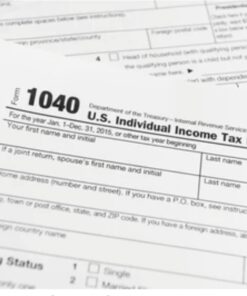LIMITED POWER OF ATTORNEY FOR FINANCES
$575.00 Original price was: $575.00.$349.00Current price is: $349.00.
What is a Limited Power of Attorney (POA)?
A limited power of attorney (POA) is sometimes called a specific power of attorney or special power of attorney. It sets the scope of authority granted to a named and trusted ‘attorney’ (referred to as an agent or an attorney in fact in most states) by a ‘principal’ (the named individual giving their permission) who grants the other party specific powers to make decisions related to their personal or professional life. This document may or may not give durable power.
A common use of a limited power of attorney is one used in the entertainment business. Many times, a talent manager or agent will have their client sign a limited power of attorney so that they may cash their client’s checks on their behalf. The manager or agent will receive and cash the check, take their commission, and issue a new check (minus their percentage) to the client.
Another time that a limited power of attorney may be used is when a parent may have to leave the country for a period of time. If the parent wishes to place the child in the care of a family member or friend, the parent would give this temporary guardian a limited power of attorney to make schooling, and important medical decisions for the child.
Other Names
A limited power of attorney is also known as a “specific” power of attorney.
Definition of a Limited Power of Attorney
A limited power of attorney is a document that gives the named person, the agent or attorney-in-fact, with the legal authority to perform certain actions on behalf of the person who signs the document (known as the principal). A limited power of attorney doesn’t provide the agent with full authority over the principal. It outlines only the decisions that the agent may make for the principal. For example, a financial manager may have their client sign a limited power of attorney that allows the financial manager to invest their money without specifically speaking with the client to gain their consent. A limited power of attorney may also be known as a special power of attorney.
Limited Power of Attorney vs. Power of Attorney
There are differences between a limited power of attorney and a traditional power of attorney. Their differences may help you better identify which document is better for your needs.
- A limited power of attorney is used only for one specific actions. For example, you’re going out of the country and you’re appointing someone to make a single financial decision on your behalf during your absence.
- A traditional power of attorney may list one or more decisions that the agent may make on behalf of the principal. It could also be much broader and encompass all decisions.
- A limited power of attorney is limited by the length of time that the principal chooses. For example, a financial manager would only have the power to take certain actions on behalf of their client to manage their investments during the time that the client uses their services. If the client changes to a different financial manager, the original one would no longer hold those powers. It could also be specifically defined length of time. For example, if you’re traveling in Europe for six weeks, you might use a limited power of attorney that gives someone certain decision making powers related to certain affairs for only the six weeks that you’re out of the country.
- A traditional power of attorney could be used until the principal is declared incapacitated by a court of law or at least two medical professionals.
The Timeframe of a Limited Power of Attorney
Generally, a limited power of attorney lists a starting and ending date for the validity of the document. For example, if you were traveling abroad for two months, the start date would be the day that you’re leaving the country and the end date would be the date of your return. It may also have certain triggering factors that end the document’s validity. For example, the limited power of attorney would be revoked upon the death of the principal. It may be revoked in the event the agent is the spouse of the principal and they undergo the divorce process and the principal remarries.
How to Make a Limited Power of Attorney (Step-by-Step)
First, determine exactly what it is that you’re authorizing someone to do on your behalf. It’s important that you clearly explain what this person may do on your behalf. Consider exactly how long this person will have the authority to act on your behalf. If there is a specific starting date and ending date, you must include it in the document.
The second step is just as important as the first step: choosing the right person to act as your agent. This needs to be someone you have deep trust in and that you know will do the right thing. This person should also be responsible with money.
Now, it is time for you to complete the limited power of attorney. If you’re using a template, make sure that you choose one that is specifically for your state. Each state has laws that govern the creation and execution of power of attorney documents. The template will have blank spots that make it easy for you to put in your information, the information of the agent, the description of the decision the agent may make on your behalf, the date the limited power of attorney begins, and the date that the limited power of attorney ends.
The fourth step is executing the limited power of attorney. Depending on the state where you live, you may be required to sign and date the document in front of a notary public. If it is being used to make financial decisions, your state may require you to also have witnesses.
Finally, give the agent the document for their use. You should keep a copy of the document for your records.
Be the first to review “LIMITED POWER OF ATTORNEY FOR FINANCES” Cancel reply
Shipping Policy
https://app.termly.io/document/shipping-policy/20db7a2f-4869-4ff4-abfc-757e5b844999
Refund Policy
https://app.termly.io/document/return-policy/4e7319bb-6e18-4cd3-8c5b-edf5fb612d73
Cancellation / Return / Exchange Policy
https://app.termly.io/document/return-policy/4e7319bb-6e18-4cd3-8c5b-edf5fb612d73
General Inquiries
There are no inquiries yet.
Related products
Business
Business
Business
Business
Business















Reviews
There are no reviews yet.